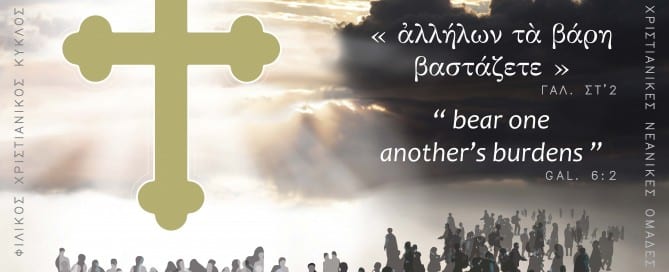Christ has made us free (Galatians 5:1)
Christ has made us free (Galatians 5:1) St Paul’s invocation “Christ has made us free” invites us to reflect on what it really means to be free as Orthodox Christians living in a modern world. Freedom is commonly thought of as the ability to choose between right or wrong, good or bad. The word in Greek eleftheria (ελευθερία) is made up of two roots – eleftho (ἐλεύθω) meaning “to come towards” or “to approach”, and eros (ερώς), meaning “love” or “desire.” “Freedom” (ελευθερία) is taken to mean “being able to live consistent with that which we desire.” What is it [...]

